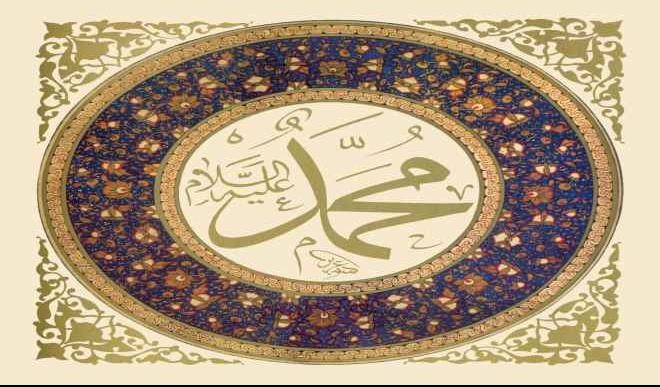On the birthday of Prophet Muhammad (S.A.W)
He is mentioned by name only four times in the Quran. He has mosque named after him, not a stadium nor a hospital. He died without millions of dinar or, in our contemporary parlance, dollars in his account. He left an estate not of mansions and palaces but of dignity and spirituality. He is Muhammad, […]


He is mentioned by name only four times in the Quran. He has mosque named after him, not a stadium nor a hospital. He died without millions of dinar or, in our contemporary parlance, dollars in his account. He left an estate not of mansions and palaces but of dignity and spirituality. He is Muhammad, son of Abdullah, son of Aminah, upon him be peace and blessings of the Almighty.
Who was that man, Muhammad (s.a.w)? He was a man who began his life as an orphan and ended his life as a state man; he was employed by the wealthiest of his era and soon became the consort, the husband of the most-sought after woman of his clime (Khadijah). He was a bachelor who never engaged in “sampling” before he got married and having got married, he remained a faithful and close confidant to his wife. Muhammad was blessed with children, boys and girls; Muhammad was a man who buried almost all his children while he was alive. Muhammad was married to women who were blessed with the fruit of the womb; he was also, and ironically too, a man who was married to a woman who was destined never to taste the joy of motherhood.
Muhammad was a leader of a group who later became the leader of a community who later became the leader of a nation. In his person, we have insights into the elements which make the ideal leader- that leader that the world is in acute need of today. He was just, compassionate, kind, deracinated, detribalised and gender-sensitive. He was contented with the little that today could offer; he never yearned to own billions of dollars and naira – billions that generations yet unborn will never exhaust; he knew the world for what it is – beautiful, alluring and fragile like the balloon.
Who was Muhammad? He started his life as an employee and displayed much trust and confidence in the discharge of his duties. He taught humanity that in order to be a good leader one must begin by being a good follower. He never embezzled the proceeds of the business which he was mandated by Khadijah to discharge for him.
Who was Muhammad? He was known as a trustworthy person. The young and the old in Makkah used to put their properties and wealth under his watch. He was kind, gentle and compassionate.
In 610 he received the first revelation in the Quran. This occurred in a cave in Makkah where he had repaired to reflect over the circumstance of the people of his time, the circumstance of humanity today: young and old who were steeped in ignorance, men and women who were neck-deep in debauchery, the rich and the poor who were engaged in macabre dance of savagery and self-assured destruction. Makkah, before 610A.D was like the modern cities of today: cities where women’s nudity are paraded as if in shopping malls, where chastity is abhorred the same way the unbeliever detests death, where injustice is the order of the day as is the situation in the contemporary world where justice has been manacled. Prophet Muhammad took refuge in the cave and soon heard a call or command: Recite! (or read!) In the name of your Lord Who created- created man from clots of blood. Recite! Your Lord is the Most Gracious,Who taught by the pen, taught man what he knew not.(96: 1-5)
The above verses speak about knowledge, how to acquire it and to whom knowledge should be dedicated. It establishes the primacy of intellectualism over and above the abyss and the oddities of ignorance. The verses marked the beginning of a journey – ten years of prophethood calling in Makkah during which the Prophet, together with those who heeded his call, were subjected to the most harrowing of all treatments; thirteen years of sojourn in Madinah during which Islam realized its full potentials. Makkah was a place where Islam was oppressed; Madinah was a space where Islam gained its freedom; Makkah was a place the Prophet was born; Madinah was destined to be the place where he would be buried; Makkah was the laboratory in which the concept of martyrdom was experimented with; Madinah was the terrain in which the idea of religious freedom and multiculturalism was operationalized: Makkah was the place Muhammad was treated as a villain, Madinahh was the place he was treated as a hero; Makkah came into history for its initial repudiation of the truth, Madinahh stepped into the centre of history for its momentous acceptance of Islam.
(To be continued next week)
Eventually Makkah and Madinahh became the twin cities of Prophet Muhammad and together with Jerusalem they became the triple cities of Islam. When taken together, Makkah and Madinah became for the Prophet what it has become for Muslims and forever too: cities where humanity is taught how to behave, first outside power and second, inside power; cities where men are made not only by virtue of the action they took but equally by serving as witnesses, and active ones for that matter, to other people’s action and inaction, to other peoples errors of omission and commission.
(To be continued next week)
